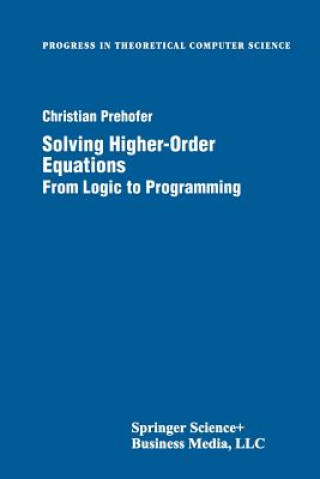
Delivery
Shopping guide





Doesn't suit? No problem! You can return within 30 days
 Gift voucher
any value
Gift voucher
any value
You won't go wrong with a gift voucher. The gift recipient can choose anything from our offer.
Solving Higher-Order Equations
 English
English
 317 b
317 b
 Delivery to Austria
Delivery to Austria
30-day return policy
You might also be interested in


This monograph develops techniques for equational reasoning in higher-order logic. Due to its expressiveness, higher-order logic is used for specification and verification of hardware, software, and mathematics. In these applica tions, higher-order logic provides the necessary level of abstraction for con cise and natural formulations. The main assets of higher-order logic are quan tification over functions or predicates and its abstraction mechanism. These allow one to represent quantification in formulas and other variable-binding constructs. In this book, we focus on equational logic as a fundamental and natural concept in computer science and mathematics. We present calculi for equa tional reasoning modulo higher-order equations presented as rewrite rules. This is followed by a systematic development from general equational rea soning towards effective calculi for declarative programming in higher-order logic and A-calculus. This aims at integrating and generalizing declarative programming models such as functional and logic programming. In these two prominent declarative computation models we can view a program as a logical theory and a computation as a deduction.
About the book
 English
English


 Contact
Contact How to shop
How to shop























